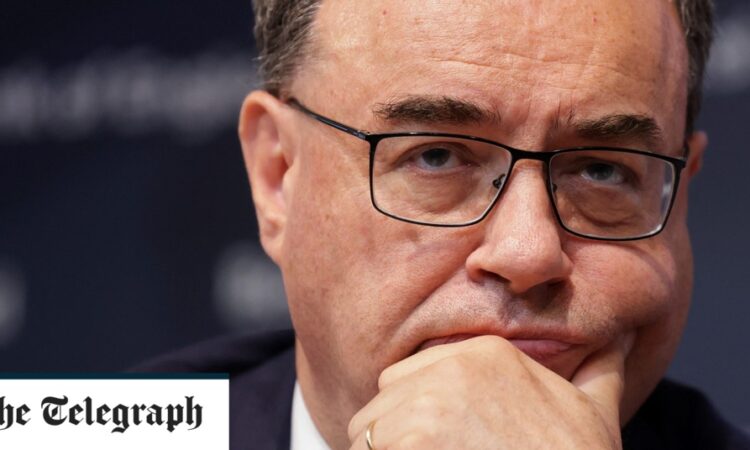
However, economists added that falling oil prices could be why US inflation fell by more than expected, which may make the lower rate harder to sustain. Core inflation fell less rapidly than the headline rate last month, slowing from 5.9pc to 4.8pc. Erik Norland, senior economist at CME Group said this implies that over four fifths of the reduction in headline inflation came from falling oil prices.
It came as Mr Bailey, the Bank of England’s Governor, said higher interest rates will not trigger a financial crisis as Britain’s lenders are strong enough to withstand the impact and support customers.
Traders in financial markets now expect the Bank of England to raise its base rate to a peak of 6.25pc, down from the previous expectation of 6.5pc.
Interest rates have risen from 0.1pc to 5pc since the Bank of England began increasing the benchmark in December 2021. The Bank’s rate-setting Monetary Policy Committee is expected to raise rates further when they meet next month to 5.5pc.
Rising interest rates are having knock-on effects through the economy, but Britain’s eight largest banks all passed the Bank of England’s stress tests, exercises in which lenders’ books are examined to see how they can withstand a hypothetical economic crash.
The war gaming looked at whether lenders could withstand a downturn worse than the 2008 crisis, including a 30pc slump in house prices, a 5pc drop in GDP and inflation at 17pc.
NatWest, Barclays, Standard Chartered, Virgin Money, Santander, Lloyds, HSBC and Nationwide would all be resilient to a “severe stress scenario”, its testing found.
It added that lenders had enough cash buffers to support struggling borrowers.
The Bank said: “The UK banking system has the capacity to support households and businesses through a period of higher interest rates, even if economic and financial conditions were to be substantially worse than expected.”
However, it warned that the sharp transition to higher interest rates and greater market volatility would create new stress in the financial system.
The biggest impact will be on homeowners who face sharp rises in their mortgage payments. Higher rates increase the probability that borrowers will default, creating losses for lenders.
The Bank warned there was also a risk of a fresh market crisis similar to the gilt chaos seen in the wake of the mini-Budget last year.
It said in its semi-annual Financial Stability Report: “There remain vulnerabilities in market-based finance which could become more apparent as interest rates continue to increase.“For example, rapid changes in interest rates can lead to liquidity challenges for non-banks, as we saw in September 2022, when the impact of a shock in the liability-driven investment (LDI) sector led to further market dysfunction in UK government bonds.“Episodes like this can push up the cost of borrowing.”
Mr Bailey demanded high street banks pass on interest rate rises to savers, adding that economic headwinds posed by higher borrowing costs were not a threat to financial stability as was the case during the financial crisis.
He said: “It’s important that rates get passed through, it’s also important that we have competition in the banking system, which encourages banks to compete on savings rates.”






